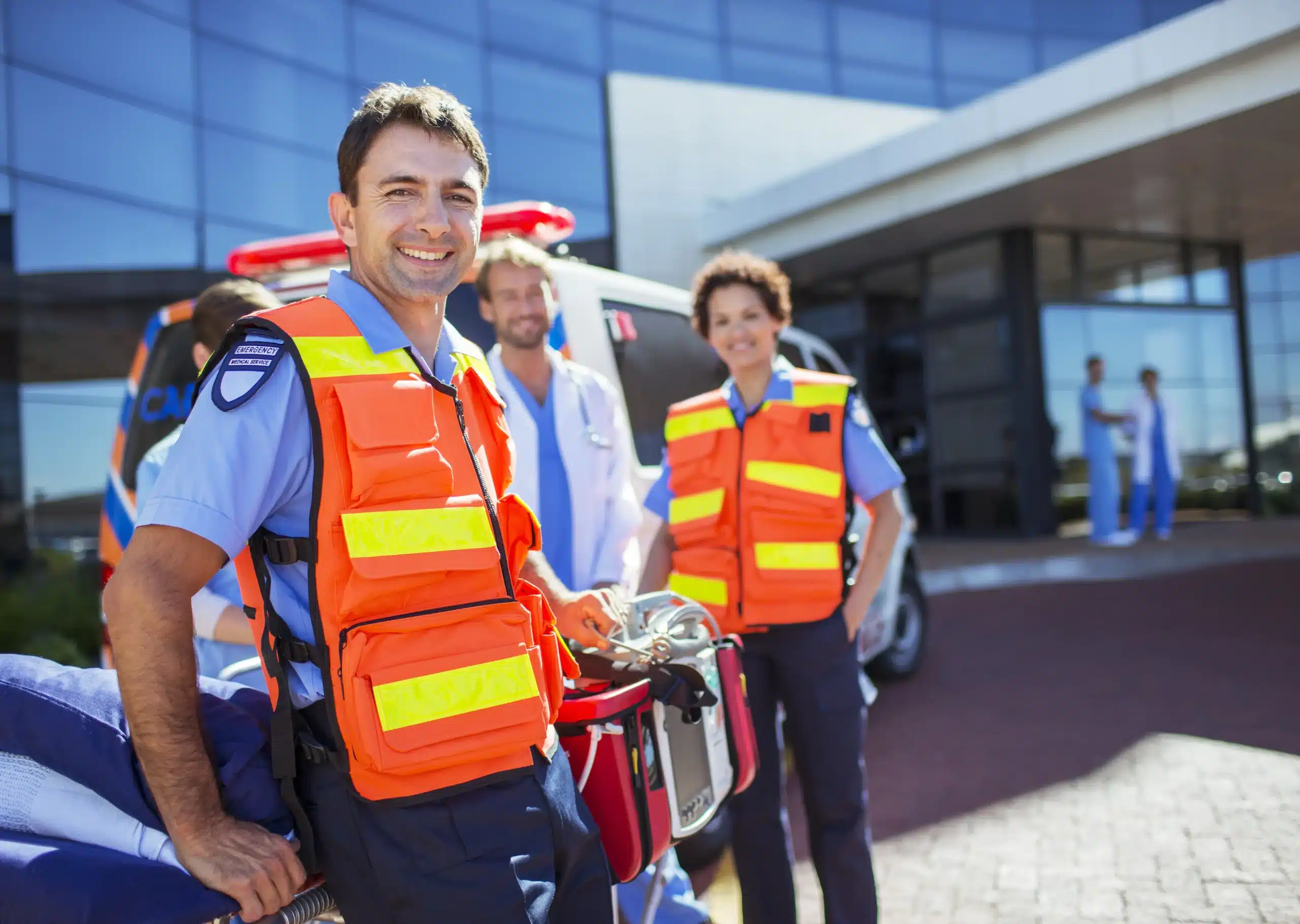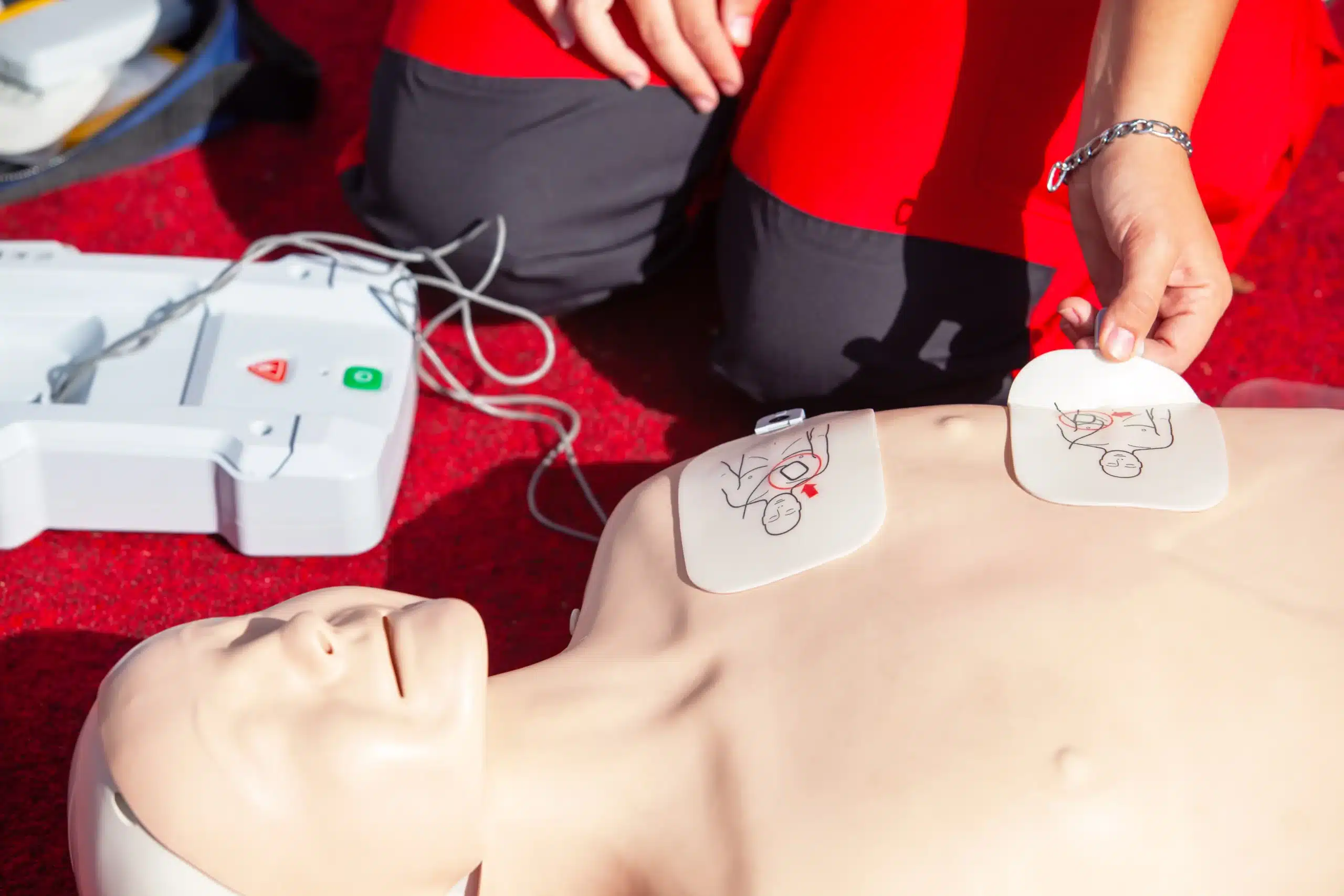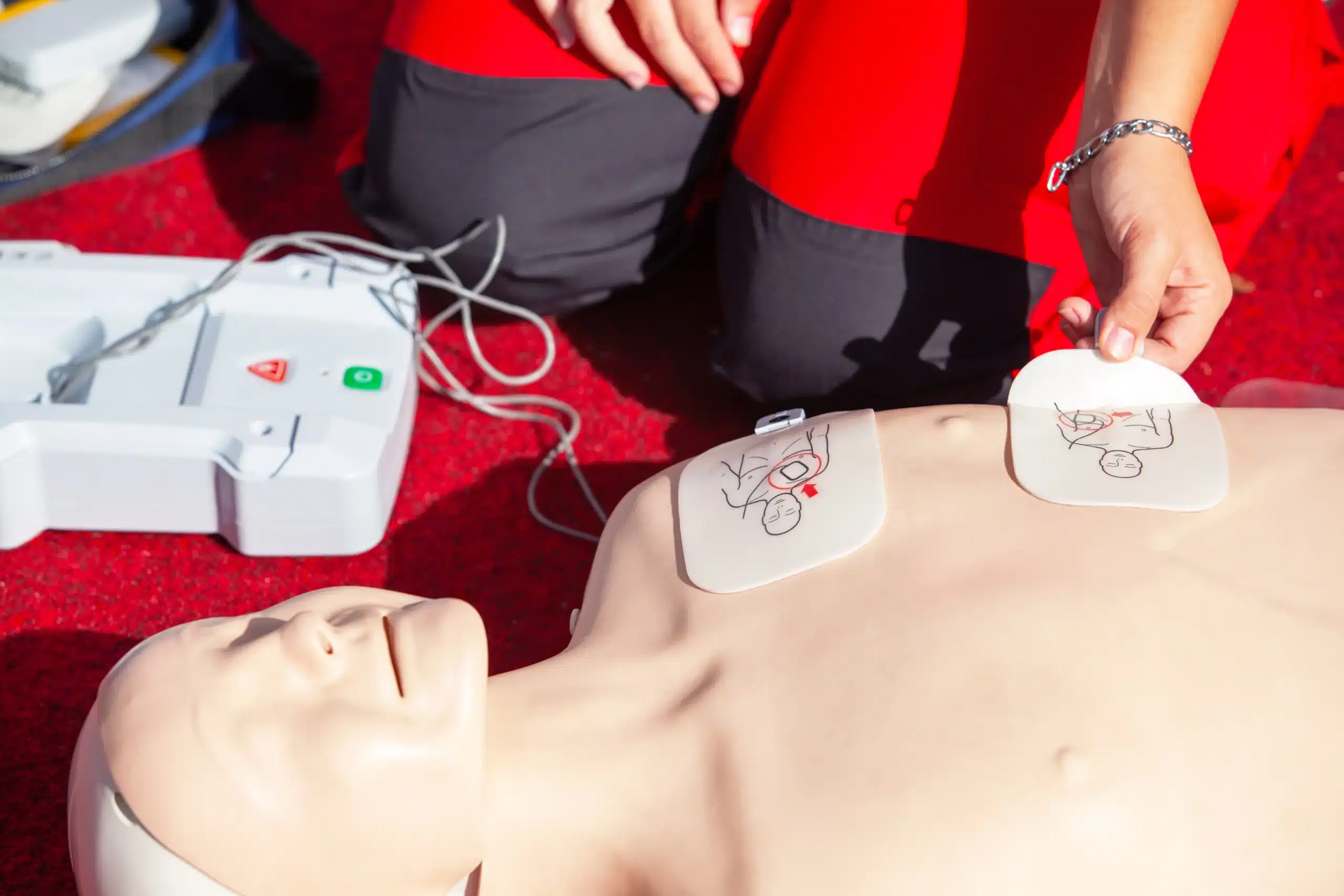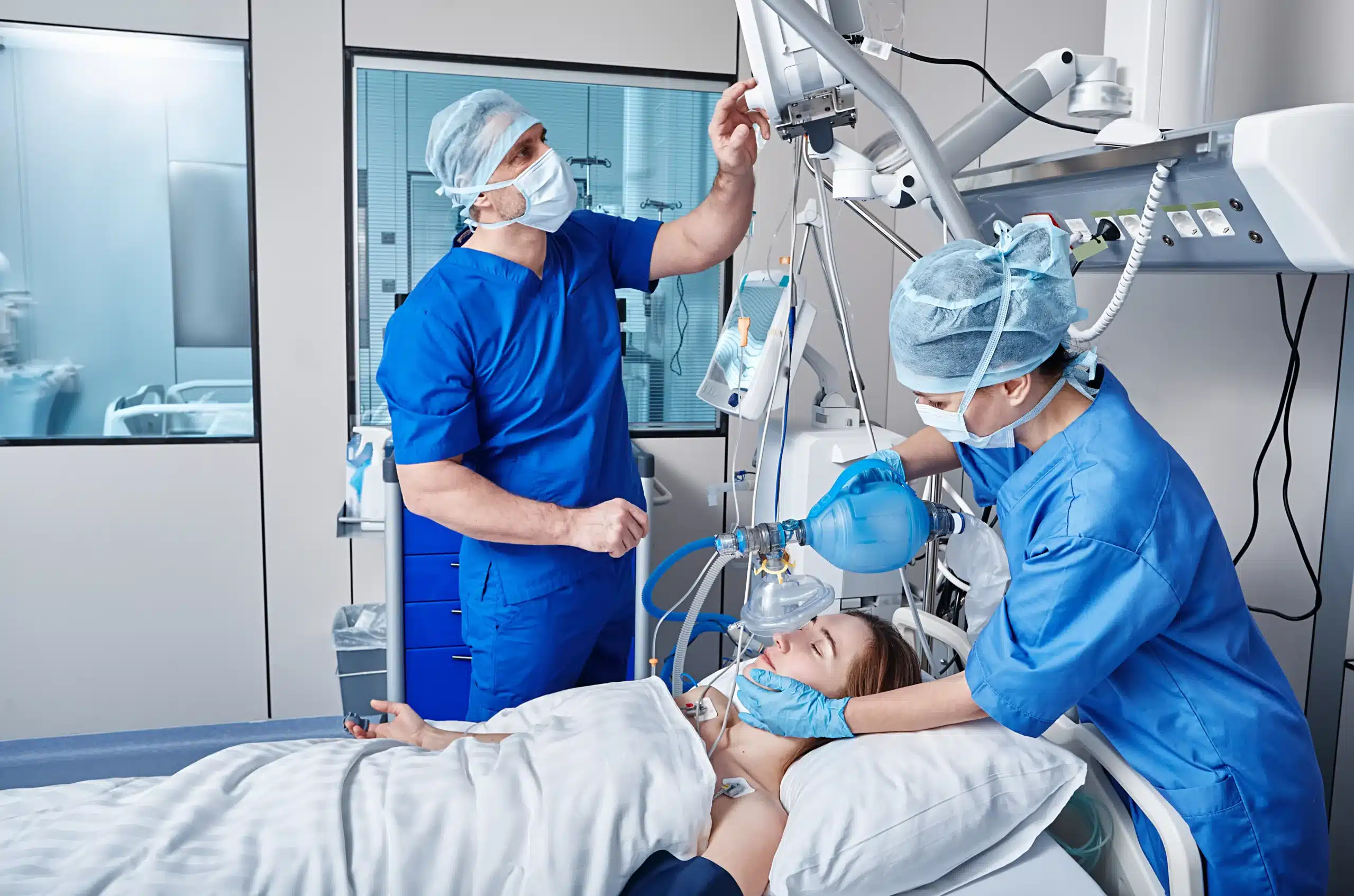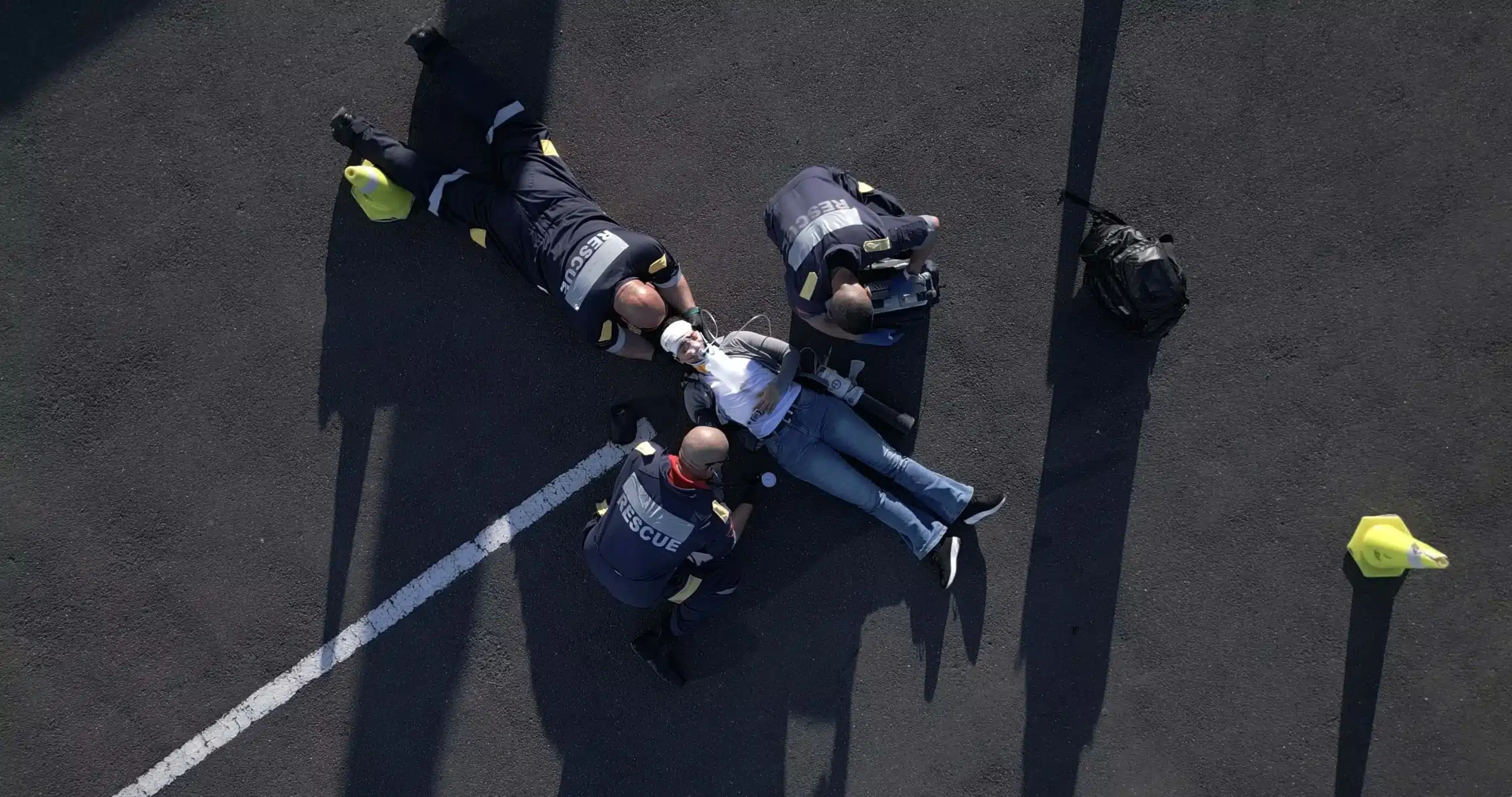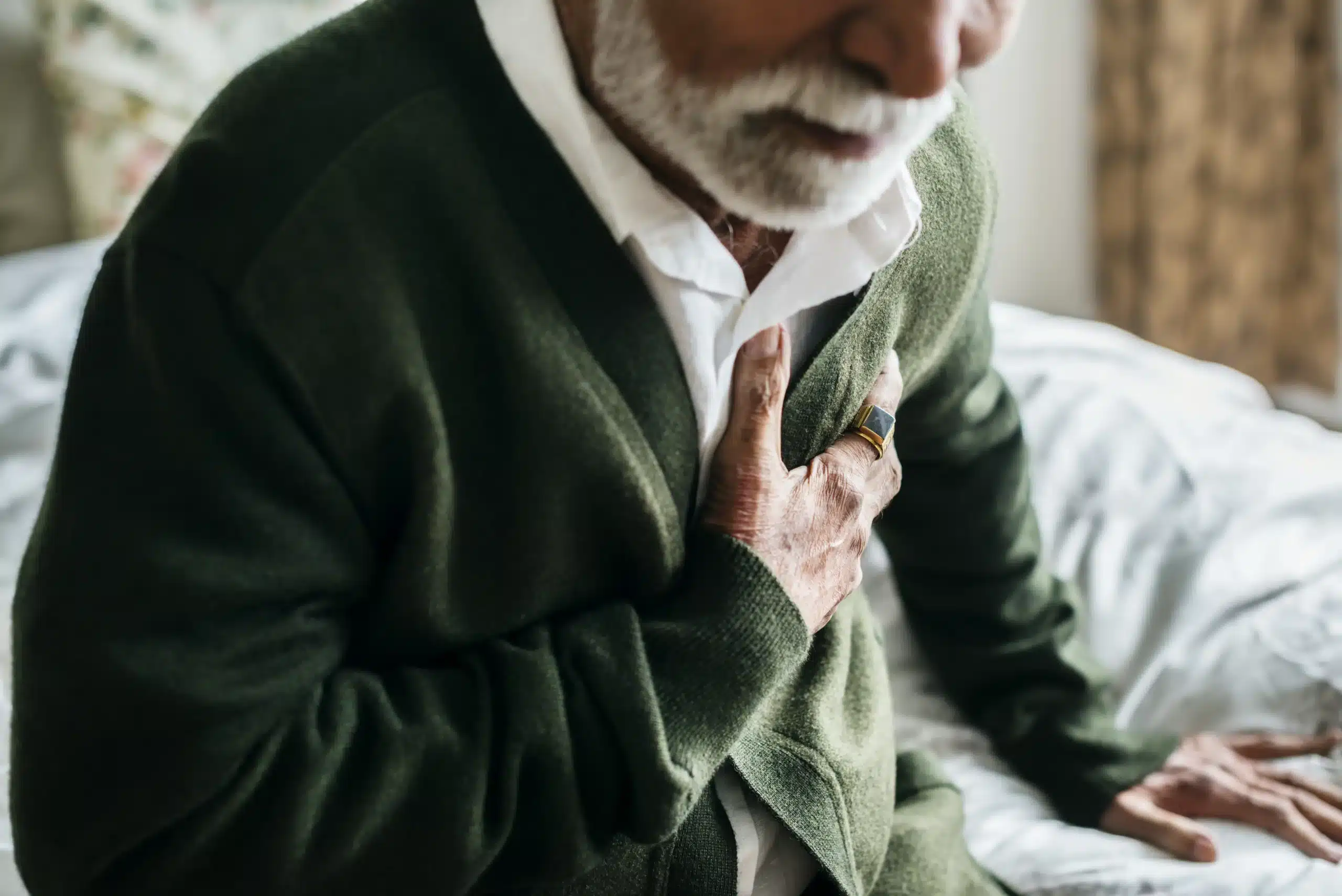Emergencies can happen anytime, anywhere. Being equipped with life-saving skills like CPR can make all the difference. If you’re looking for CPR courses in Union City, this comprehensive guide will help you find the right training to suit your needs and schedule. We’ll cover everything from basic CPR and AED use to advanced certifications like BLS, ACLS, and PALS. We’ll also discuss the costs of CPR training, available discounts, and how to find certified instructors in Union City. Whether you’re a healthcare professional or simply want to learn essential life-saving skills, this guide will provide you with the information you need to get started.
Key Takeaways
- Choose the right CPR class: Union City offers various CPR courses, from basic life support to advanced certifications like BLS, ACLS, and PALS. Select a course that aligns with your professional needs and personal goals.
- Find affordable and convenient training: Compare prices from different providers, explore group discounts, and consider online, in-person, and blended learning options to fit your schedule and budget.
- Become a vital community responder: CPR skills empower you to handle emergencies confidently and contribute to a safer environment for everyone. Explore the resources available in Union City and take the first step towards becoming CPR certified.
What is CPR Training in Union City?
CPR training in Union City gives you the skills to respond to emergencies. Courses range from basic CPR and AED use to advanced certifications like BLS, ACLS, and PALS. These courses follow American Heart Association (AHA) guidelines, so you learn the most current and effective techniques. Whether you’re a healthcare professional, teacher, or just someone who wants to learn life-saving skills, there’s a course for you. Union City offers these courses through various organizations, with flexible schedules throughout the week and weekends to fit your needs. You’ll learn how to perform chest compressions and rescue breaths, how to recognize cardiac emergencies, and why early defibrillation is so important.
CPR Training Options
Choosing the right CPR course can feel overwhelming with so many options. This guide breaks down the different types of CPR training available in Union City, so you can find the best fit for your needs.
BLS for Healthcare Providers
The BLS (Basic Life Support) for Healthcare Providers course is designed for medical professionals like doctors, nurses, paramedics, and other healthcare providers. This certification covers essential life-saving skills, including CPR, AED use, and how to relieve choking in adults, children, and infants. It emphasizes teamwork and high-performance resuscitation techniques. You can find more information on BLS courses on the San Leandro CPR Classes website.
Heartsaver CPR/AED
Heartsaver CPR/AED courses are perfect for anyone who wants to learn CPR and how to use an AED (Automated External Defibrillator). This course isn’t just for healthcare professionals; it’s suitable for teachers, coaches, parents, and anyone interested in gaining these life-saving skills. It covers CPR and AED use for adults, children, and infants. These courses are a great way to prepare yourself to confidently handle emergencies.
First Aid
While not strictly CPR, First Aid training often goes hand-in-hand with CPR certification. Learning basic first aid can help you respond effectively to common injuries and medical emergencies. Combining your CPR training with a first aid course can make you a more well-rounded and prepared responder. Knowing both CPR and first aid gives you a wider range of skills to help in various situations.
PALS
PALS (Pediatric Advanced Life Support) certification is an advanced course for healthcare providers who work with infants and children. This course builds upon the skills learned in BLS and focuses on the specific needs of pediatric patients in emergency situations. PALS certification is often required for those working in pediatrics, emergency medicine, and intensive care units. Consider a PALS course if you’re a healthcare provider specializing in children’s health.
ACLS
ACLS (Advanced Cardiovascular Life Support) is another advanced course designed for healthcare professionals. It focuses on the management of adult patients experiencing cardiac arrest or other cardiovascular emergencies. Like PALS, ACLS training often involves simulations and requires a solid understanding of advanced medical concepts. An ACLS course is beneficial for healthcare providers working in emergency or critical care settings.
CPR Course Costs & Discounts
CPR class costs in Union City depend on a few factors: the type of course, the training provider, and whether you’re learning solo or with a group. It’s smart to compare prices and check for discounts before committing to a class.
Standard Course Pricing
Generally, basic CPR and First Aid courses are more affordable than advanced certifications like ACLS or PALS. Think of it like building blocks—basic life support (BLS) skills form the foundation, while specialized training adds extra layers of knowledge. This means the price usually reflects the complexity and depth of the material.
Additional Fees
Keep an eye out for potential additional fees. Some providers might charge extra for things like certification cards, study materials, or online access. Knowing about these costs upfront helps you accurately budget for your training. For example, CPR Test Center lists a one-time fee of $24.99 for their CPR/AED/First Aid certificate and $34.99 for the BLS Healthcare Provider certificate.
Group Discounts & Promotions
If you’re training with a group, ask about discounts. Many providers offer special rates for group bookings, often for groups of eight or more. This can be a great way to save money, especially for workplaces training their staff or community groups learning together.
Low Price Guarantee
Some training centers, like Safety Training Seminars, offer a low price guarantee. This means they promise to match or beat competitor pricing, giving you extra confidence that you’re getting a good value. San Leandro CPR Classes also offers a similar low price guarantee, so it’s always worth checking if a provider has one.
Course Length & Schedule
Finding a CPR class that fits your busy schedule shouldn’t be a hurdle. Luckily, there are several learning formats available, from self-paced online courses to traditional in-person classes, and even blended learning options. Let’s break down what each entails so you can choose the best fit.
Self-Paced Online Courses
Online courses offer maximum flexibility. Work through the material at your own speed, pausing and reviewing as needed. This format is perfect for those juggling work, family, or other commitments. Providers like CPR Test Center offer online CPR/AED/First Aid certification, allowing you to learn essential lifesaving skills from home. Keep in mind that online courses typically require an in-person skills session for complete certification.
In-Person Class Schedules
If you prefer a more hands-on learning experience, in-person classes are a great option. Companies like Safety Training Seminars offer classes seven days a week, making it easier to find a time that works. In-person training provides direct interaction with instructors, allowing for immediate feedback and personalized guidance. You’ll also practice your skills in a real-world setting with other students.
Blended Learning
Blended learning combines the best of both worlds. You’ll complete the coursework online at your own pace, then attend a shorter in-person session to practice and demonstrate your skills. This approach offers flexibility while ensuring you receive the hands-on training necessary for effective CPR. Check out our BLS course guide for more information on blended learning options like the HeartCode BLS course.
Instructor Qualifications & Accreditation
Finding the right CPR instructor is just as important as choosing the right course. You want someone with the right credentials, experience, and teaching style to make your learning experience effective and engaging. Here’s what to look for in a qualified CPR instructor in Union City:
AHA Certification
A key factor in selecting a CPR course is confirming it’s certified by the American Heart Association (AHA). The AHA sets the standards for CPR and emergency cardiovascular care training and certification. AHA-certified courses, like those offered by San Leandro CPR Classes, adhere to these rigorous standards, ensuring you receive high-quality instruction and a recognized credential. This is especially important for healthcare providers and professionals who require certification for their jobs. Many organizations in Union City offer CPR certification, but verifying AHA certification ensures your training aligns with industry best practices.
Instructor Experience
Beyond AHA certification, consider the instructor’s experience. Experienced instructors bring real-world knowledge and practical insights to the classroom, creating a more engaging and relevant learning experience. Look for instructors with a background in healthcare, emergency services, or related fields. They can offer valuable perspectives and answer your questions based on their firsthand experience. San Leandro CPR Classes is known for its experienced instructors committed to excellent customer service and comprehensive training. They adapt their teaching to different learning styles, ensuring everyone understands the key concepts and skills.
Choose the Right CPR Course
Knowing which CPR course best suits your needs can feel overwhelming with so many options. This section breaks down the different types of CPR training and who they best serve, so you can confidently choose the right certification.
Healthcare Professional Needs
If you’re a healthcare provider—like a doctor, nurse, or EMT—you’ll likely need BLS certification. BLS for Healthcare Providers covers essential life-saving skills, including CPR, AED use, and how to relieve choking. This certification is often a prerequisite for other advanced certifications like ACLS and PALS. It’s crucial for maintaining your professional license and providing effective patient care.
Public & Workplace Safety
For those outside of healthcare, a Heartsaver CPR/AED or First Aid course might be more appropriate. These courses give you the skills to respond to emergencies at your workplace, home, or in your community. While not as specialized as BLS, these certifications still provide valuable, potentially life-saving knowledge. If you’re unsure which course is right for you, check with your employer or contact us to discuss your options. Sometimes, workplaces require specific certifications, so it’s always a good idea to confirm.
Benefits for Different Professions
Different professions benefit from specific CPR training. Childcare providers, for example, might consider a course tailored to infants and children. Lifeguards and other professionals working near water may require additional training in water safety. Even if CPR certification isn’t mandatory for your job, having these skills can make you a valuable asset in any team or community setting. Group discounts are often available, making training your entire team more affordable. Consider the specific requirements and potential risks associated with your profession when choosing your CPR course.
CPR Training Providers in Union City
Finding the right CPR training can feel overwhelming with so many options. To simplify your search, I’ve compiled a brief overview of providers serving Union City. Remember to visit their websites for the latest course details and schedules.
San Leandro CPR Classes
San Leandro CPR Classes offers a variety of American Heart Association (AHA) certifications, from the basics of CPR and AED use to more advanced life support training. They offer BLS, ACLS, PALS, and First Aid certifications, making them a convenient option for all your training needs. Their low-price guarantee helps ensure you’re getting a good value. For larger groups, check out their website for information on group discounts.
Hayward CPR Classes
Hayward CPR Classes prioritizes accessible, high-quality AHA-certified courses. They highlight convenient scheduling and competitive pricing, a plus if you have a packed schedule or are working with a limited budget. With courses designed for various experience levels, they have options for everyone from beginners to those needing recertification. Learn more about their offerings in their guide to CPR certification in Union City.
CPR Education
CPR Education offers various CPR and first-aid training programs in and around Union City. They provide certification for individuals, groups, and businesses, with courses ranging from basic CPR to specialized training like pediatric CPR. Their local focus makes them a practical choice for Union City residents. Explore their course options on their website.
Safety Training Seminars
Safety Training Seminars brings the training to you with on-site courses, a great option for businesses or larger groups. They offer AHA-certified BLS, ACLS, PALS, and CPR training, allowing you to select the certification that best meets your requirements. Reach out to them to discuss your specific training needs.
CPR Test Center
With over 11 years of experience, CPR Test Center provides a streamlined path to certification. They offer a one-time fee that covers CPR/AED/First Aid and BLS for Healthcare Providers. This simple approach is ideal if you need a fast and efficient way to get certified. Visit their Union City page for additional details.
Register & Get Certified
Getting your CPR certification is easier than you think, with options to fit your schedule and learning style. Whether you prefer online learning or the hands-on experience of an in-person class, we’ll guide you through the process.
Online Registration
Online CPR and first-aid certification courses offer a convenient way to learn lifesaving skills. Providers like CPR Test Center offer online training that follows internationally accepted procedures, mailing you a physical card upon completion. This allows you to learn at your own pace and get certified from home. For American Heart Association certifications like BLS, ACLS, PALS, and First Aid, San Leandro CPR Classes offers convenient online registration for residents of San Leandro, Hayward, and Union City. They also offer the RQI program for expedited certification.
In-Person Sign-Up
If you learn best in a classroom setting, in-person CPR classes are a great option. Safety Training Seminars offers American Heart Association BLS, ACLS, PALS, and CPR certification classes in and around Union City. They can even conduct training at your location. For CPR and first-aid training near Union City, CPR Education provides classes and renewal certifications that can be arranged nearby. San Leandro CPR Classes also offers discounts for group classes.
Certification Renewal
CPR certifications are typically valid for two years. It’s a good idea to refresh your skills every 6–12 months, even if your certification hasn’t expired. This ensures you’re always prepared to respond effectively. While basic CPR and AED courses provide foundational knowledge, consider additional certifications like BLS for more specialized training. San Leandro CPR Classes can answer any questions about renewing or upgrading your certification. They offer a low price guarantee.
CPR Training Myths
Let’s clear up some common misconceptions about CPR training. Accurate information is key to finding the right course for you.
Online Certification
One of the biggest questions is whether online CPR certification is valid. The short answer: yes, it can be. The key is making sure your certification comes from a recognized organization like the American Heart Association (AHA) or the American Red Cross (ARC). Our online CPR certifications meet these standards with a high acceptance rate (98%). If convenience is a priority, online training might be a good fit.
Certification Duration
How long does it take to get certified? It depends on the course. A basic CPR course for the public typically takes about three hours. Professional CPR training for healthcare providers usually takes four to five hours. Advanced courses, like BLS, ACLS, and PALS, can take up to 16 hours, often spread over several days. Refresher courses are generally shorter, usually under four hours.
Training Difficulty
Some people worry about the difficulty of CPR training. While some courses are more demanding, all CPR training focuses on practical, learnable skills. The AHA certification is often considered more rigorous and preferred in professional healthcare settings. However, both the AHA and Red Cross teach similar techniques. Choose the certification that best aligns with your career goals.
CPR Scope
CPR classes cover more than just chest compressions and rescue breaths. You’ll learn to recognize the signs of a heart attack and stroke, how to use an AED, and what to do if someone is choking. Our comprehensive training prepares you to handle various emergencies. We also offer First Aid training to build your skills even further. Contact us to learn more about our CPR and First Aid courses.
CPR’s Impact on Union City
CPR training has a profound impact on communities, and Union City is no exception. From improved survival rates to increased community preparedness, the benefits of readily available CPR training are undeniable. Let’s explore how CPR training is making a difference in Union City.
Improved Survival Rates
Learning CPR can quite literally mean the difference between life and death. When someone experiences sudden cardiac arrest, immediate CPR can double or even triple their chances of survival. Think of it this way: you’re not just learning a skill; you’re gaining the power to save a life. Bystanders trained in CPR can step in and provide immediate assistance while waiting for first responders. Real-life stories highlight how quick action by those trained in CPR has led to positive outcomes in emergencies. Knowing CPR can turn a moment of crisis into a story of survival, empowering individuals to make a real difference. Learn more about the impact of CPR on survival rates.
Community Preparedness
A community prepared for emergencies is a stronger community. Widespread CPR training fosters a sense of collective responsibility and empowers individuals to act in times of need. Sharing success stories inspires others to pursue CPR training and become potential lifesavers. This sense of preparedness strengthens community bonds and creates a safer environment for everyone.
Training Accessibility
Union City residents have access to a variety of CPR training resources. Several organizations offer various courses, from basic CPR and AED training to advanced certifications like BLS for Healthcare Providers, ACLS, and PALS. This accessibility ensures that anyone interested in learning CPR can find a course that fits their needs and schedule. Explore the different CPR class options in Union City. With convenient locations and flexible scheduling, becoming CPR certified has never been easier.
Related Articles
- Everything You Need to Know About CPR Classes in Union City – San Leandro CPR Classes
- BLS Training in Union City: Your Comprehensive Guide – San Leandro CPR Classes
- Pediatric Advanced Life Support (PALS) in Union City – San Leandro CPR Classes
- HeartCode BLS in Union City: Your Complete Guide – San Leandro CPR Classes
- Pediatric CPR & First-Aid Training in Union City – San Leandro CPR Classes
Frequently Asked Questions
What’s the difference between CPR and First Aid?
CPR focuses specifically on life-saving techniques for cardiac emergencies, like chest compressions and rescue breaths. First Aid covers a broader range of injuries and illnesses, from cuts and burns to allergic reactions. Think of CPR as a specialized tool within the larger toolkit of First Aid.
How do I choose the right CPR class?
Consider your current job or career aspirations. Healthcare professionals typically require BLS certification, while others may find Heartsaver CPR/AED sufficient. If you work with children, look into courses covering pediatric CPR. Think about your specific needs and who you’re most likely to use these skills on.
What if I’m nervous about performing CPR in a real emergency?
It’s completely normal to feel apprehensive. CPR classes emphasize hands-on practice and realistic scenarios to build your confidence. Remember, any action is better than no action. The skills you learn can make a real difference, even if you’re feeling stressed in the moment.
How long does CPR certification last, and how do I renew it?
CPR certifications are generally valid for two years. Check with your certifying organization for specific renewal requirements. Many providers offer refresher courses to keep your skills sharp. Staying up-to-date ensures you’re always ready to respond effectively.
Why should I get CPR certified if it’s not required for my job?
CPR is a valuable life skill that can empower you to help in unexpected situations. You never know when you might need to use it – on a family member, a friend, a coworker, or even a stranger. Knowing CPR can give you peace of mind and the ability to make a difference in a critical moment.
